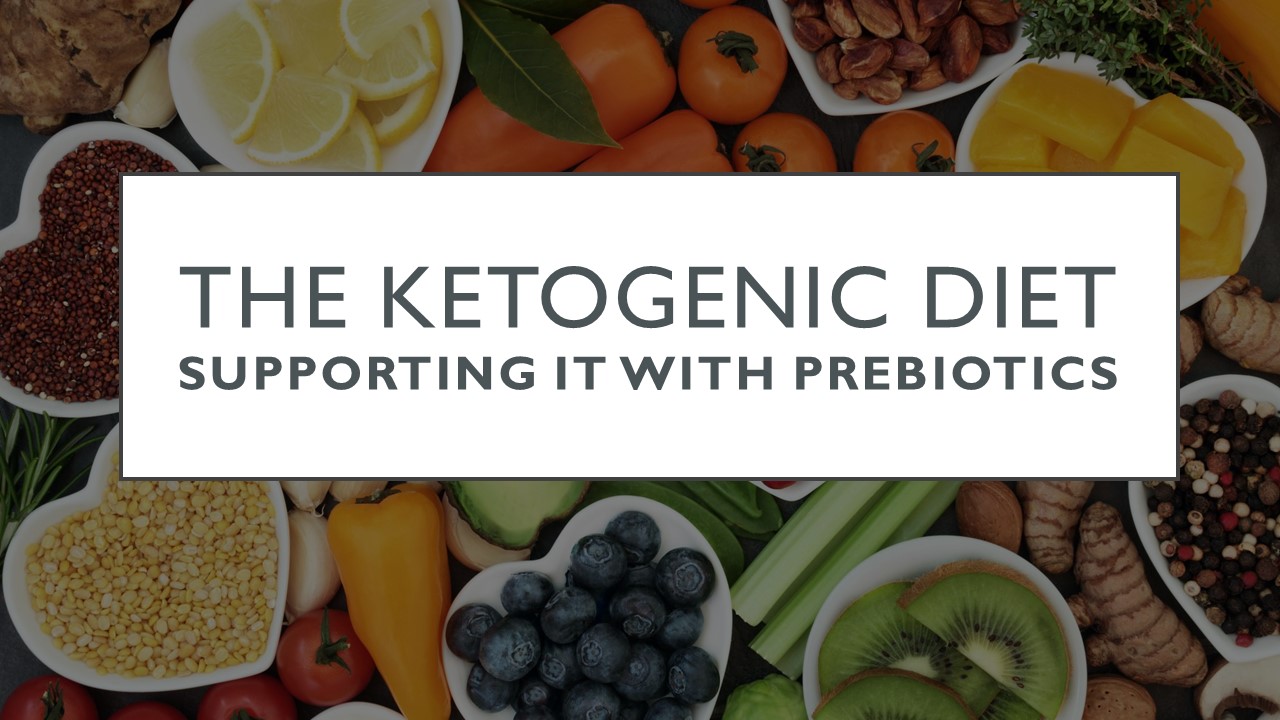The ketogenic diet has become pretty popular, and for the right person, it may be a great idea in the short or long term. This presentation is not here to extoll the benefits of this diet. My assumption is that you are already on it, or contemplating doing it. That is your decision. My goal here is to further assist you if you choose to follow this diet.
The origins of the diet actually go back 2,500 years. It was found that fasting was able to reduce symptoms in epilepsy. As you can imagine, fasting is not a long-term solution. It was in 1921, when a paper was published that explained how what we now call the keto diet, could yield the same benefits of fasting in epilepsy, without the downside of starvation. The original version of this diet required that about 90% of the calories come from fat, while protein intake was a little more than carbohydrate. One granny smith apple a day would be your limit for carbs. So, what does this accomplish? Well, it changes the biochemistry of the body from a primarily sugar-burning organism, and puts it into a ketogenic state, which mimics starvation. What does the body do in starvation? It mobilized fat stores, which is why it’s a great idea for weight loss. But it also has a slew of other benefits, for epilepsy as mentioned, as well as other neurological conditions.
Given the strict nature of the diet, and the possible adverse events, a number of different versions have been introduced. Which makes a lot of sense. I would be challenged to get 90% of my calories from fat. These versions have different names, but the idea is generally to keep the carbohydrate intake restrictive, but reduce the fat requirements and up the protein. Although these diets work, we run into real-world obstacles. Many people work and have busy lives. Many others will fall into the idea that they can eat all the bacon, sausage and pork rind they want, and be just fine. So, the goal is to get you the results you desire, given the lifestyle you lead, but without compromising your health. And notwithstanding the fact that bacon, sausage and pork rinds are bad for your health, the diet in general is NOT good for your microbiome.
The keto diet significantly reduces key health-promoting bacteria, names of which you’ve probably never heard of before like F prausnitzii, E rectale, Coprococcus, Roseburia and more. These are the true superheroes of the gut. But when you don’t feed them the fuels they love, their abundance goes down. And when you do feed the bad actors the fuels they love, their abundance goes up. I explain all of this in detail in my video presentation.
I want you to have the best of both worlds. To get the clinical results you’re looking for, while at the same time, maintaining the health of your microbiome, and the rest of your body. Because, keep in mind, your microbiome is closely related to the condition you’re trying to resolve with a keto diet. For more on that, watch my presentations on dementia, Parkinson`s and obesity/metabolic syndrome. The intelligent use of properly blended and dosed prebiotics will not hinder your results, but in fact they will help. Prebiotics are keto compliant. We don`t absorb the sugars within, they don’t count towards your daily carb intake. But when those sugars are fermented by those amazing bacteria we discussed earlier, a number of fantastic things happen. One if which is an increase in your satiety hormones. That’s right. If your goal is to lose weight, then you’ll feel less hungry as well.
In our world as it is, we all now have to be our own health advocates. With a broken government, food and medical system, you need to take charge of your healthcare. So, educate yourself, as best you can. This is why I’ve launched my educational platform. For you. You can find my presentation entitled, “The Ketogenic Diet – Supporting it with Prebiotics” in my Microbiome University tab, and also on my YouTube channel. If you have a condition or disease that you think would be well served by addressing your microbiome, you can visit the Protocols tab on my website where you can find a science-based protocol which may dramatically improve your quality of life, as they have done for many others (see my testimonials).
The references cited within this video presentation
The Role of Ketogenic Diet in the Treatment of Neurological Diseases – PubMed (nih.gov)
Diet rapidly and reproducibly alters the human gut microbiome – PubMed (nih.gov)
Profiling of Protein Degraders in Cultures of Human Gut Microbiota – PubMed (nih.gov)
Colonic Butyrate-Producing Communities in Humans: an Overview Using Omics Data – PubMed (nih.gov)
Dietary Protein and Gut Microbiota Composition and Function – PubMed (nih.gov)

